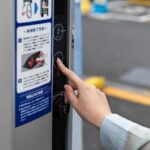According to the AutoLeap report, the market size of the auto repair industry in the USA is flourishing like never before. It was estimated to be $83 billion in 2023 and is projected to reach $134 billion by 2033. As more people seek to keep their vehicles in good condition, entrepreneurs have a promising market ahead.
- Why Choose the Auto Repair Business?
- Legal and Licensing Requirements to Establish an Auto Repair Shop
- Create an Auto Repair Business Plan
- Registering and Licensing Your Business
- Consider the Location Zone
- Obtaining Necessary Permits
- Getting an Employer Identification Number (EIN)
- Considering Environmental Precautions
- Conclusion
However, opening an auto repair shop comes with numerous legal and licensing challenges that must be understood. From business formation to environmental compliance, each stage is vital to ensuring the legitimacy and legal protection of your operations. Let us guide you through the process, but first, let’s learn more about the business.
Why Choose the Auto Repair Business?
Here are three key reasons to enter the auto repair industry.
Consistent Demand
With over 283.4 million registered vehicles running on the roads of the United States alone, the demand for auto repairs continues to grow. Many of these vehicles are over 11 years old, increasing the likelihood of repairs needed. This creates steady demand for auto repair services and reliable opportunities for return on investment.
Multiple Income Streams
A major advantage of this business is its variety of potential revenue sources. You’re not limited to offering routine oil changes or basic maintenance. By expanding into areas like advanced engine diagnostics and specialised repairs, your income potential broadens.
Promising Growth Potential
This sector offers significant flexibility for entrepreneurs. You can start small—perhaps even from your garage—allowing you to adapt, learn, and gradually expand your auto repair business at a comfortable pace.
Legal and Licensing Requirements to Establish an Auto Repair Shop
Create an Auto Repair Business Plan
From choosing the type of auto repair shop to selecting a location, a detailed business plan is essential. Small business owners typically operate with limited capital, so careful consideration of costs for specialised tools and equipment, such as diagnostic machines suited to your planned services, is crucial. Many shops begin by focusing on a niche service before expanding into additional areas.
In addition, selecting the right location involves assessing factors like the target customer base, accessibility, visibility for increased foot traffic, and rental costs. These elements are crucial in establishing a successful operation.
Registering and Licensing Your Business
Next, you need to register and secure the necessary licenses for your auto repair business. Many small business owners choose to form a Limited Liability Company (LLC) because it offers a flexible structure and protects personal assets from business liabilities. Each state in the U.S. has its own licensing policies and requirements depending on the type of business, so you’ll need to research and comply with the specific rules where you plan to operate. For example, if you’re opening a repair shop in Florida and forming a Florida LLC, you may need to obtain a local business tax receipt from the county and register with the Florida Department of Revenue.
Most states require you to obtain a motor vehicle repairer’s license, which typically involves applying along with proof of qualifications such as ASE certifications or completed training programs. Additionally, compliance with environmental, consumer protection, and workplace regulations specific to auto repair is mandatory. Don’t forget to handle all tax registrations, including state sales tax, federal excise tax, and payroll taxes.
Consider the Location Zone
Before signing a lease or purchasing property, ensure that the area is zoned for vehicle repair. Even if the facility appears to be in excellent condition, local zoning rules may limit some automobile activity. Furthermore, your shop will most likely be required to comply with specific building rules governing ventilation, flammable liquid storage, and fire systems. Ensure that the entire space is well-regulated.
Obtaining Necessary Permits
Registering and licensing are not the only steps; permits are also required. These include
- Sales Tax Permit: Necessary if you sell auto parts or provide taxable services.
- Auto Repair License: Some states require a specific license for auto repair shops or mechanics.
- Sign Permits: Many local councils require permits for outside signage.
- Fire department permit: Since shops handle chemicals and large machinery, a fire inspection and permit are essential.
Getting an Employer Identification Number (EIN)
If you operate an LLC or other business structure in Florida, you must obtain an Employer Identification Number (EIN) from the IRS. An EIN acts like a social security number for your business and is necessary for tax purposes.
You’ll need an EIN to open a business bank account and to distinguish personal and business finances clearly.
Considering Environmental Precautions
Operating an auto repair shop involves handling hazardous chemicals that can harm the environment. Therefore, adherence to two key regulations is vital—
- EPA regulations: The U.S. Environmental Protection Agency provides federal guidelines for managing and disposing of hazardous waste, which your shop must follow.
- OSHA compliance: Your shop must meet Occupational Safety and Health Administration (OSHA) standards. This entails maintaining Material Safety Data Sheets (MSDS) for all chemicals and delivering proper safety training for employees.
Without avoiding the above environmental precautions, the aim is to help customers run their vehicles smoothly.
Conclusion
Meeting licensing and regulatory requirements isn’t enough; ongoing adherence is crucial to avoid fines or closure. By establishing a solid legal foundation, you can focus on delivering dependable, high-quality auto repair services to your customers.














